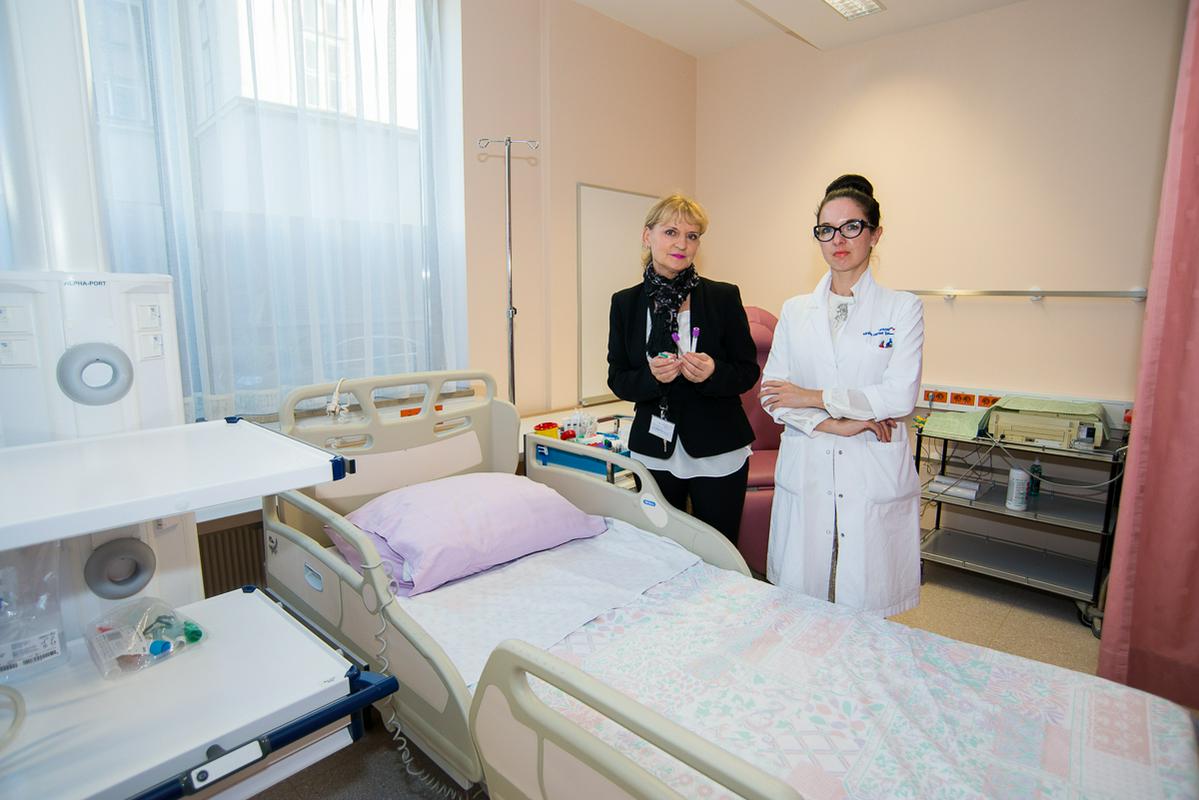
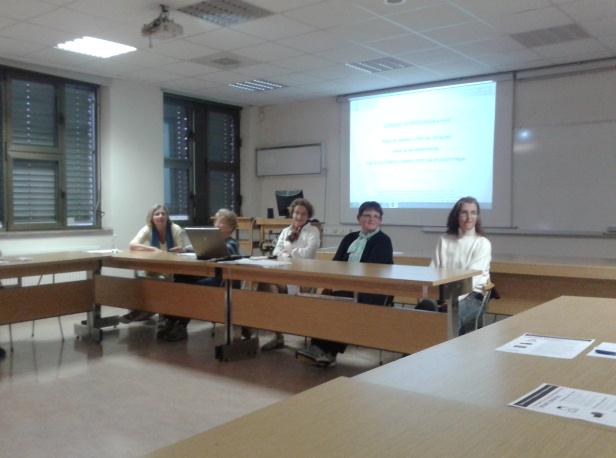
I finished high school in regular time and went to university. Then I began looking for a job and everybody only noticed my injuries, but not my brains. But I found a job nevertheless. I then also completed an international Masters and gave birth to my daughter who is now 11-years-old. I accomplished all these achievements after the stroke. So, never give up. If people say no to you, don't let that hurt you. No is only an option when you are the ones who say no.
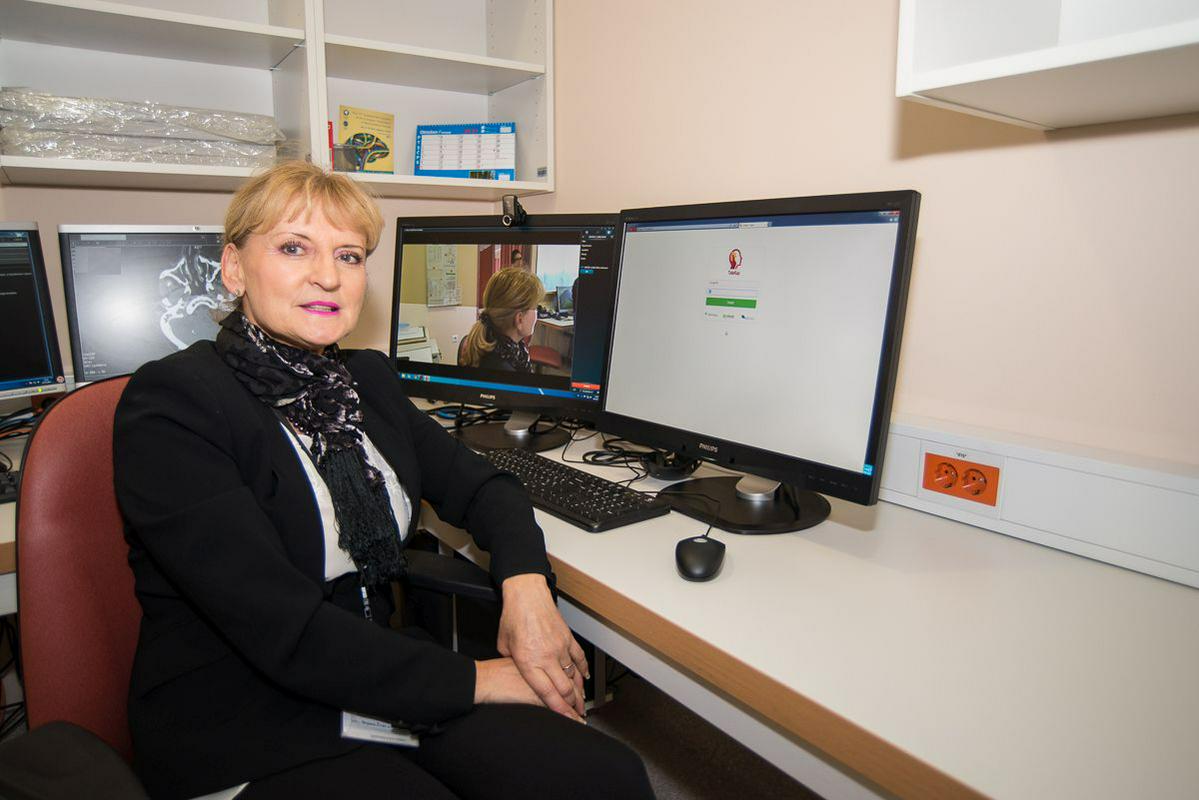
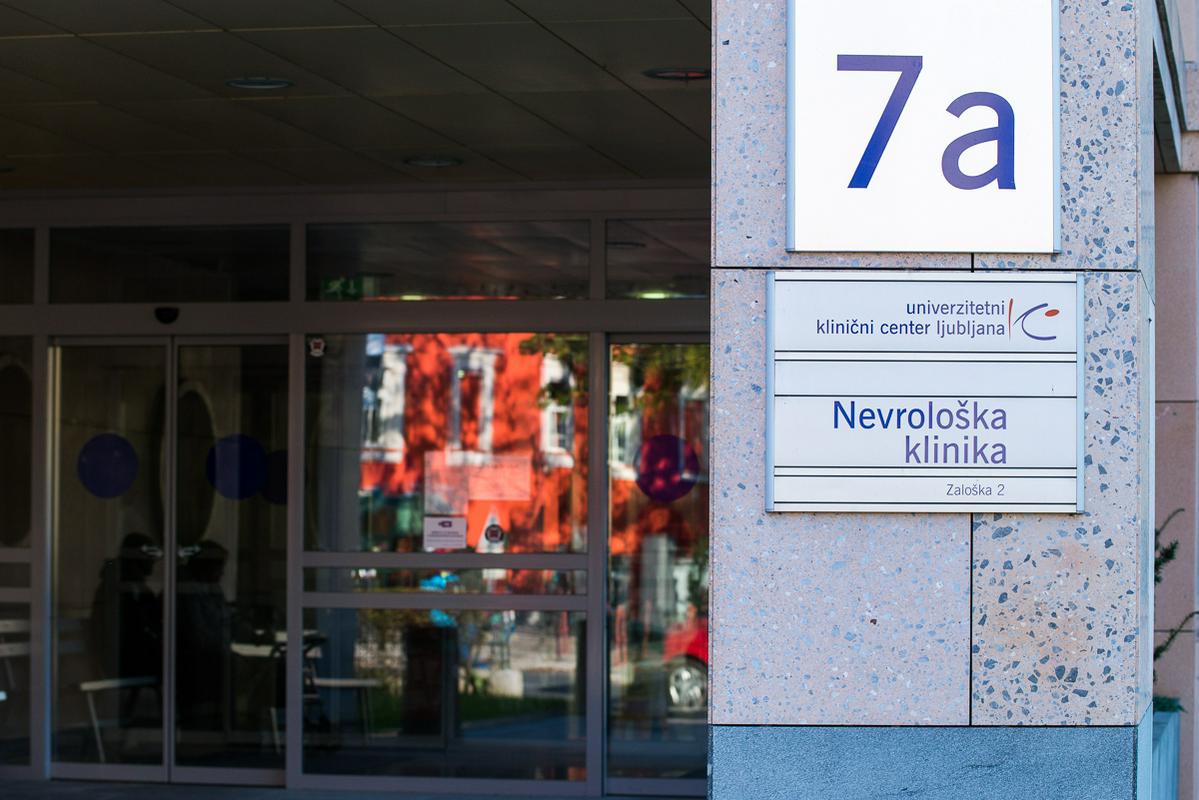
My first steps were walking up and down on the balcony. You cry a lot – you can't button up, you can't knit, you can't do anything. So what now? You fall into despair. And then you realize, that you can't continue on like that. That's when stubbornness and will come in.

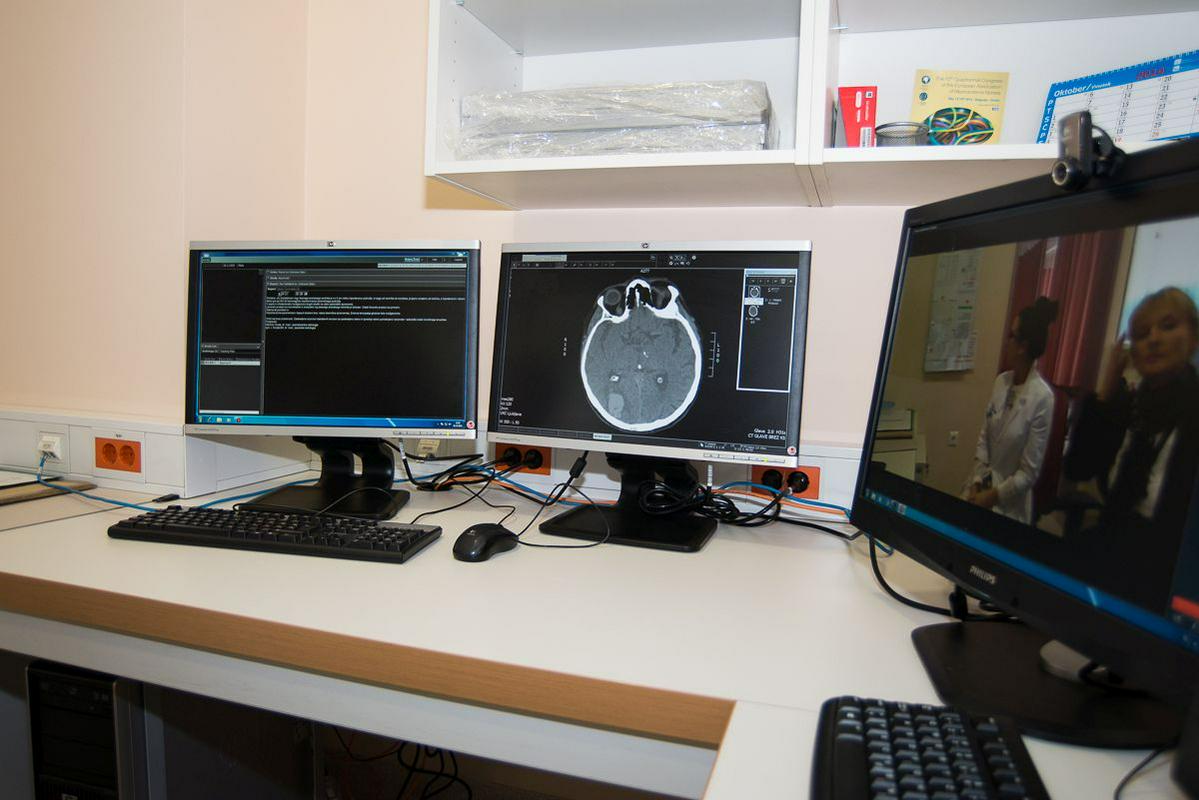
There were periods in the hospital when I went through emotional turmoil. We probably all went though that: I asked myself why me, why was this happening to me. I cried a lot and I was angry. At the end I realized that I was in fact happy to have survived and that I wanted to live. I made a resolution that I had to continue, and that things would again be the same as they were before. Of course, it is not exactly the same as it was, but when I decided to live, many doors opened.
She hardly remembers the events after the stroke. After having spent 14 days at the Gynaecology department at the University Medical Centre, and after 14 days at the Maternity hospital, together with her husband and new-born child she moved to the Soča University Rehabilitation Institute where she spent the next 6 months. “I breast-fed my son and underwent numerous therapies. It was difficult, but I have very nice memories of my stay at the rehabilitation institute. There, I learned how to silk paint. Even today, when in low spirits, I start thinking about the things I could silk paint,” is how Lara Slivnik remembers the period which turned her family’s life upside down. “I live my life fully now. I particularly remember one event: One whole night, I was pondering what my daughter’s name was. I just couldn’t remember, it was an awful feeling,” Lara describes her dark memory, adding that this was just one of the things that had happened - merely a memory today.
Today Lara is employed part-time and has meanwhile earned a PhD as her job required. She is happily married. Both her children are grown up and independent. She is also the president of the Cerebrovascular Diseases Club Ljubljana. She has shared her story at the Women and Stroke discussion organised at the Soča Rehabilitation Institute. Patients and their families took part in the discussion. Below we also present the story of another woman, whose life went through serious changes after the stroke. Today’s World Stroke Day, organized by the World Stroke Organisation, is dedicated to women.
In Slovenia, around 4.400 people suffer from a stroke every year, explains Prof. Dr. Bojana Žvan, a vascular neurologist from the Neurology Division. Around 2.000 people die of stroke; the figure refers to the prevalence proportion and not to new cases. "It means 2.000 of all the people currently living in Slovenia that have had a stroke. The total number is estimated at around 60.000." Figures from the National Institute for Public Health show that the stroke death rate could be reduced for more than 35%, if the rate from all other Slovene regions would equal the death rate from the Ljubljana region.
Assistant neurologist, Senta Frol, emphasizes that stroke symptoms and signs develop within seconds or minutes. It is an emergency that requires immediate medical treatment. “Symptoms depend on the area affected by the stroke. The most common symptoms and signs of a stroke are vision disturbance affecting one side, double vision, paralysis, inability to move one side of the body, slurred speech, inability to speak and understand, feeling numb on one side of the body…” Frol explains the symptoms. If we notice these symptoms on another person, it is important to act immediately. “Call 112 immediately for the patient to be directed to a medical institution as soon as possible.”
The initial treatment for an acute stroke is still thrombolythic therapy: thrombolythic drugs dissolve fibrin, of which a new blood clot - a thrombus, is made up of. Prof. Dr. Žvan stresses that timing is crucial - the therapy can only be performed within four and a half hours. After that the drug can even be harmful.
What can we do to prevent a stroke?
According to Frol it is important that each individual pays attention to stroke risk factors: increased blood pressure, increased glucose and cholesterol levels, as well as smoking, increased body weight, irregular heartbeat, consuming unhealthy food which is high in salt, fats and carbohydrates. "We need to pay attention to the above-mentioned risk factors and adopt a healthy lifestyle, exercise, diet with fruits and vegetables, reduce the intake of salt, fats and sugar, avoid smoking and the over-consumption of alcohol."
Slovenia's stroke rate has remained the same in the last 15 years
"We're in the golden middle - at the tail of the developed countries, and at the top of the undeveloped," is Prof. Dr. Žvan's answer to the question on where Slovenia stands in regards to stroke patient treatment. She adds that the stroke rate in countries with higher income has been reduced by around 40 percent in the last four decades. In countries with lower income the numbers have doubled. "The number of stroke cases in Slovenia is falling due to the improved prevention of cerebrovascular diseases (for example the treatment of high blood pressure, reducing cholesterol levels and smoking, healthier diets, more exercise…). However on the other hand we also have an increase in cases due to the ageing population," explains Prof. Dr. Žvan.
Will, will, will
Recovering from a stroke is a long process and demands perseverance and systematic work. The recovery also depends on the physical and mental effects the stroke has had on the individual. Normal tasks like buttoning a shirt or walking up the stairs can be very demanding. There can be no progress without an iron will and optimism. The stories of each patient are different, but they all ask the same question: Why me? Prof. Dr. Žvan adds, that once in this horrible life situation, it is also important to find things that are beautiful. "We have to be happy but also show our sorrow. It is right that we express such sad feelings. But we also have to know how to be joyful. We have to be happy for every step we climb, for that is an achievement."
I finished high school in regular time and went to university. Then I began looking for a job and everybody only noticed my injuries, but not my brains. But I found a job nevertheless. I then also completed an international Masters and gave birth to my daughter who is now 11-years-old. I accomplished all these achievements after the stroke. So, never give up. If people say no to you, don't let that hurt you. No is only an option when you are the ones who say no.
My first steps were walking up and down on the balcony. You cry a lot – you can't button up, you can't knit, you can't do anything. So what now? You fall into despair. And then you realize, that you can't continue on like that. That's when stubbornness and will come in.
There were periods in the hospital when I went through emotional turmoil. We probably all went though that: I asked myself why me, why was this happening to me. I cried a lot and I was angry. At the end I realized that I was in fact happy to have survived and that I wanted to live. I made a resolution that I had to continue, and that things would again be the same as they were before. Of course, it is not exactly the same as it was, but when I decided to live, many doors opened.

































































